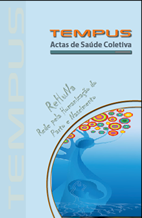Resumo
Despite recent efforts to improve the quality of public health services in Brazil, inequalities and institutionalized violence persist in hospitals. This critical anthropological study investigates the human experience of hospitalization from the viewpoint of patients of a public hospital located in Fortaleza, capital city of the state of Ceará, in the Northeast of Brazil. A qualitative method, “The Patient’s Pathway,” was created and utilized. It blends ethnographic interviews, patient’s narrative collected prospectively during the entire hospitalization – from admittance to discharge – and participant observation. The pathway of 13 keyinformant patients was followed. Results reveal that our patients narrated 225 distinct hospitalization experiences. The majority (83.6%) was interpreted by patients as “degrading” and “humiliating” their sense of personhood; only 16.4% were seen as “caring” for the patient, contributing to the recovery of their health. A progressive demoralization of the “suspect patient” is revealed, beginning with his/her reception by uniformed guards and confiscation of personal belongings. Hospitalization is characterized as abandonment, loneliness and imprisonment, due to the imposition of norms, rules and procedures which ignore patients’ autonomy, subjectivity and personal conditions. Despite the oppressive hospital structure, patients manage to resist, drawing upon multiple strategies: personal traits, creative imagination, social solidarity and religious faith. Humanizing public hospitalization in the Northeast of Brazil requires including the patient’s voice and experience while removing harmful stigmas.A Tempus garante critérios rigorosos, por meio de avaliação sistemática. Os autores se responsabilizam pela veracidade e ineditismo do trabalho cabendo a eles a cessão de direitos de publicação à revista. A confiabilidade dos conteúdos e a marca própria de apresentação tem como objetivo uma comunicação personalizada, adaptada aos padrões da revista, na medida em que adota critérios de excelência exigidos por seus usuários e especialistas, considerando os rigores da comunicação científica. Os autores devem especificar sua contribuição individual na concepção, delineamento, execução do trabalho, análise ou interpretação dos dados, redação e aprovação final do manuscrito. Incluir Fontes de financiamento e de apoio logístico das pesquisas. Ao final da submissão do artigo, os autores devem enviar uma declaração de cessão de direitos de publicação à Revista TEMPUS , assinada e no formato PDF (Portable Document Format ): Modelo da declaração de cessão de direitos.
